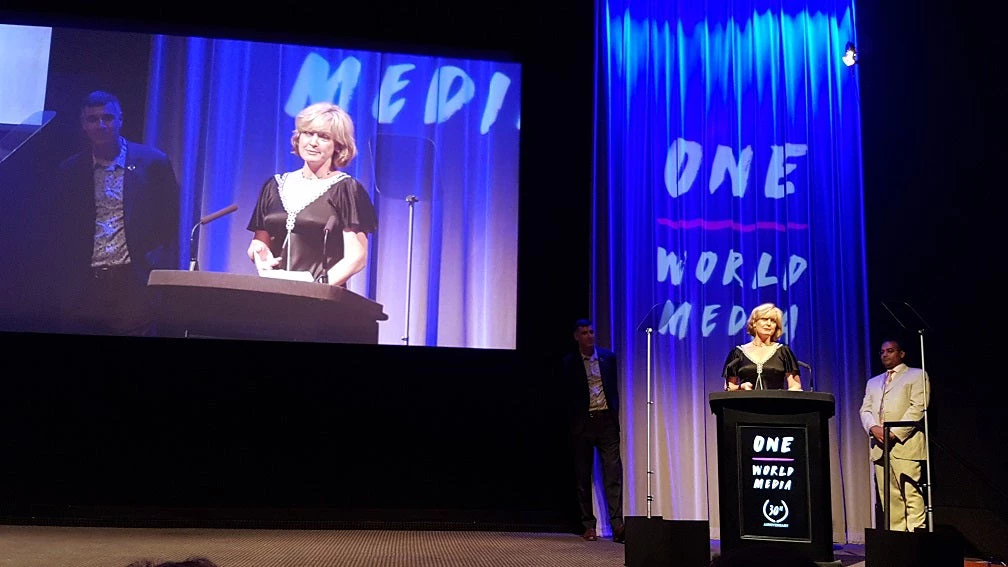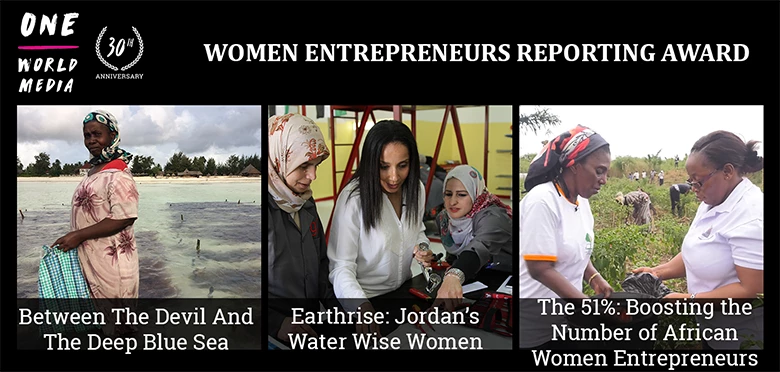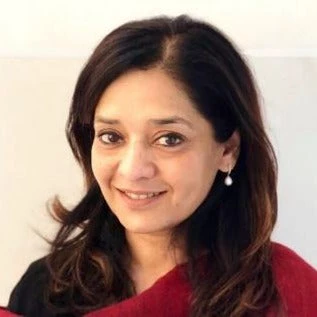
Jordan’s Water Wise Women initiative puts women at the heart of efforts to combat severe challenges in water supply and sanitation by training more than 300 local women to be plumbers. The program, led by the German government, led to the formation of a women’s cooperative that bids for commercial contracts in schools, mosques, and government agencies.
A short documentary film produced for Al Jazeera showcases how these women are not only challenging stereotypes by thriving in the male-dominated profession of plumbing, but also implementing a range of water management techniques for their communities.
Each group of Water Wise Women is trained to eradicate water leakage and improve hygiene. Trained women receive toolboxes and funding for outreach to disseminate information within their community and reach at least 20-25 other women.
The film was just awarded the Women Entrepreneurs Journalism Award, sponsored by the Women Entrepreneurs Finance Initiative (We-Fi), as part of the 2018 One World Media Awards. This is the first time that the One World Media Awards have included reporting on women’s entrepreneurship as a category. The award covers broadcast, digital, film or print journalism that explores women’s entrepreneurship in developing countries. Reporting can showcase stories of successful female entrepreneurs, the challenges women face in trying to start or grow their businesses, and/or the critical role that women entrepreneurs play in economic development by boosting growth and creating jobs.
- Between the Devil and the Deep Blue Sea, a feature article by Lisa De Bode for World Policy Journal, tells the story of Flower Msuya, botanist, professor, and entrepreneur, who has spearheaded a sustainable seaweed industry on the island of Zanzibar. Flower hopes to create a model for other African countries looking to develop this lucrative industry.
- The 51%: Boosting the Number of African Women Entrepreneurs, a short documentary film produced by France 24 (in English), showcases the first-ever 'Women in Africa Forum' in Marrakech. One of the biggest hurdles for African Women in business is when they cannot own property; among other things, this makes it almost impossible for them to access the credit they need to start or grow their businesses. The film reports on female cocoa farmers determined to change the system of land ownership in Côte d’Ivoire.

We-Fi’s goals
As the finalists of this year’s awards illustrate, women-owned small and medium enterprises (SMEs) face unique and significant hurdles to starting and growing their businesses across the developing world. They are often shut out by financial institutions. Unfavorable business and regulatory environments, along with a lack of networks, knowledge, and links to high-value markets, further constrain female entrepreneurship.We-Fi, which opened for business last year during the World Bank Annual Meetings, harnesses both public and private sectors to open new doors for women entrepreneurs across the developing world. We-Fi is the first of its kind – a large-scale, multi-stakeholder partnership designed to address the full range of obstacles facing women entrepreneurs around the developing world through comprehensive, sustainable solutions. We-Fi’s agenda on women’s economic empowerment is critical to the World Bank Group’s goals of ending poverty and boosting shared prosperity.
With support from 14 donors, We-Fi has raised more than $340 million—almost twice the original target. With its focus on maximizing financing for development (every dollar of We-Fi funding seeks to leverage $4 to $5 of private and other financing), We-Fi will enable activities designed to knock down the full range of barriers facing women entrepreneurs in developing countries.
At the recent World Bank Group/IMF Spring Meetings—just six months after it was formally established—We-Fi announced its first round of funding allocations for programs/projects to be implemented by the Islamic Development Bank, the Asian Development Bank, and the World Bank Group. This first round allocated $120 million, expected to mobilize over $1.6 billion in additional funds for programs that will help women-owned or led SMEs access finance, markets, technology and other support, while also helping to improve policy and regulatory environments. Some 58 percent of funds allocated will go to IDA countries or states affected by fragility, conflict or violence, putting We-Fi on track to exceed its commitment to devote half its portfolio to those areas.
By addressing the financial and non-financial constraints facing women-owned/led SMEs, We-Fi can unleash the potential of women entrepreneurs, supporting inclusive economic growth, job creation and poverty reduction for everyone.
RELATED
-
Women Entrepreneurs Finance Initiative allocates first round funding; Expected to mobilize twice the original target.


Join the Conversation